HOME > Basketball
2 consecutive wins! The boss was traded, and the second boss is gone! In just half a year, they are on their way to the playoffs
2:04pm, 26 October 2025【Basketball】
For Chicago Bulls fans, the wait over the past few years has been like a long tug-of-war - they once had six championships in the Jordan era and witnessed Rose's meteoric peak, but when the management put together the "Big Three" lineup of LaVine, DeRozan, and Vucevic, the team was unable to even reach the playoff threshold. Last summer, the Bulls pressed the "rebuilding button": trading away the team's "boss" DeRozan, and a few months later trading "second child" LaVine to the Kings. Everyone thought Chicago would fall into a long trough. But no one expected that in just half a year, this team that had been criticized would rise with a crazy winning streak! At the beginning of the new season, they have won two consecutive games and defeated the Pistons and Magic, two strong teams in the Eastern Conference. In fact, starting from March this year, the Bulls showed signs of qualitative change. In March, they won 10 of 14 games, including a double defeat of the Lakers, Lectra Nuggets and other playoff-level opponents. From a "rebuilding fish belly", they have now transformed into a dark horse team that will compete in the playoffs.
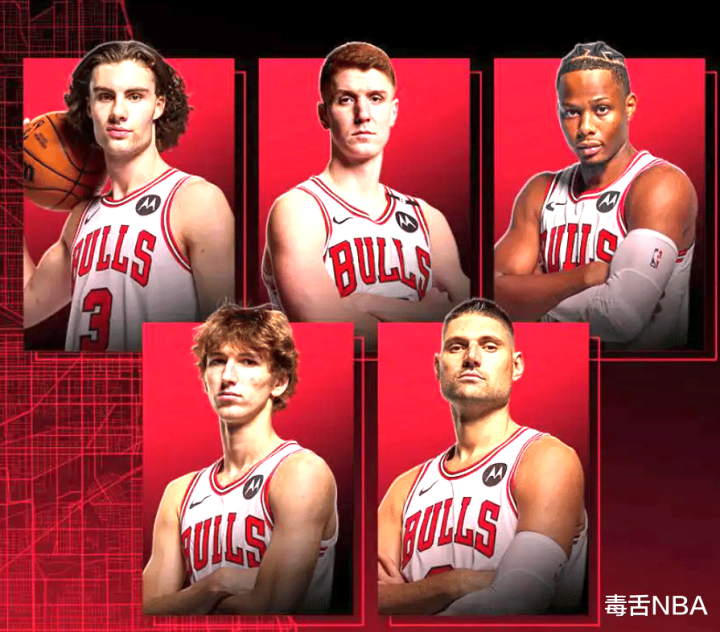
1. "Fake prosperity" in the era of the Big Three: The dilemma of offensive and defensive imbalance
In the era of LaVine, DeRozan, and Vucevic, the Bulls' paper strength seemed bright. LaVine's violent dunks and ability to average 25+ points per game, DeRozan's mid-range killer qualities, and Vucevic's inside support. Looking at individual statistics alone, they are all at the level of the league's top stars. But the team's record has always been stagnant. Not to mention the championship, even the playoff spot is in jeopardy - the core of the problem lies in the fatal imbalance of "attacking the strong and defending the weak".
The Bulls have never been short of offensive resources. Last November, they scored 120.1 points per 100 possessions. This offensive efficiency is surpassed by only the Cavaliers in the entire league. But even so, they still lost 11 games. Looking at the game records at that time, it is even more absurd: they scored 126 points against the Jazz and still lost, they scored 131 points against the Grizzlies and still lost, and they still lost against the Celtics after scoring 129 points - just because their defense was like "paste". During the same period, they lost as many as 126.8 points per 100 possessions, and their opponents could tear apart the defense at will. Just like a game that only focuses on offense, no matter how many points the Bulls score, they can't withstand the opponent's crazy counterattack.
What is even more embarrassing is that the compatibility between the three giants has always been questionable. Both LaVine and DeRozan need the ball in their hands, and their offensive options overlap, resulting in chaotic distribution of ball rights; Vucevic needs to feed the ball inside, but the core outside player only focuses on singles, and his support ability is seriously wasted. When the team is in trouble, no one can stand up and sort out the rhythm, and can only rely on star players to solve the problem in isolation. Young people are squeezed out and have no room to grow. Although Coby White has scoring talent, he can only wait for opportunities on the bench; Josh Guidy was just traded from the Thunder and was pushed to the edge of the rotation before he could adapt. Such "pseudo-prosperity" is destined to be difficult to last.
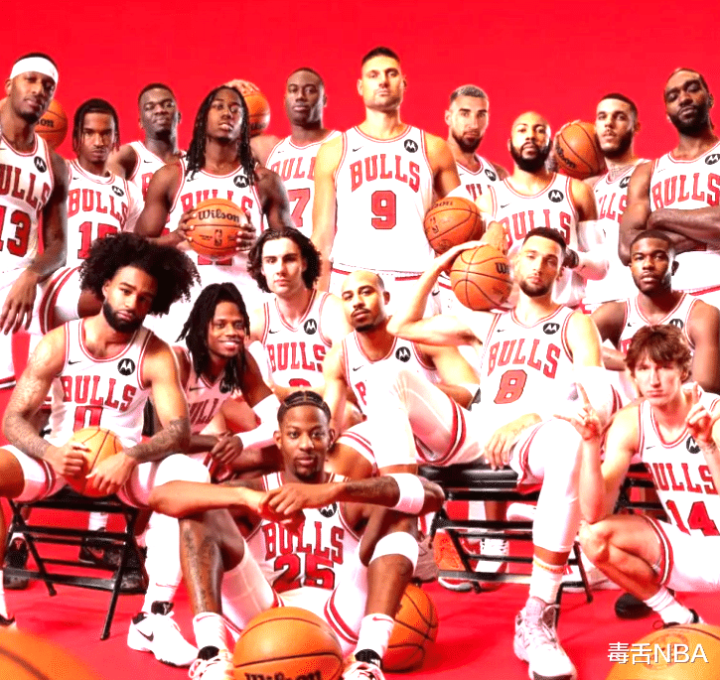
2. An unexpected outbreak during reconstruction: the post-2000 dual-core team took up the banner
Last year in the offseason, the Bulls sent DeRozan to the Kings through a three-party trade. Before this year's trade deadline, LaVine was also sent to the Kings in a three-party trade. The outside world generally believed that they would enter "smash mode." After all, without the two core scorers, the team's offensive firepower will inevitably drop sharply, and the team will inevitably fall into a long rebuilding period. But the Bulls broke all predictions with actual actions: after LaVine left the team, the ball rights were redistributed, and post-2000 teenagers White and Gidi ushered in an explosion, directly leading the team to "counterattack."
The Bulls in March became the most surprising team in the league. They defeated the Magic, the Pacers and other Eastern Conference rivals, double-killed the Lakers with James, and even overturned the defending champion Nuggets. In these 10 victories, White and Gidi's performance could be called "All-Star level." White averaged 29.5 points, 4.5 rebounds and 4.1 assists per game, shooting 49.6% from the field and 37.3% from three-point range. Previously, he could only be a "green leaf" next to LaVine, but now he has become the first choice on the outside, averaging 20.3 shots per game and 29.4% of the ball. Usage rate, in exchange for a very high ball conversion rate; Gidi has evolved into a "triple-double machine", averaging 22.5 points, 10 rebounds and 9.5 assists per game, with a shooting percentage of 52.5% and a three-point shooting percentage of 41.2%. Even three-pointers, which he was not good at in the past, have exploded during this period.
What excited Chicago fans the most was Gidi's buzzer-beater in Los Angeles - a 46-foot three-pointer at the buzzer, directly defeating the Lakers and James. This goal not only went down in the history of the Bulls, but also became a "declaration" of the team's rise. You know, before January, Gidi struggled and was involved in various scandals. The Thunder was unable to provide him with a big contract, so they were willing to trade him to the Bulls. But after LaVine left the team, he completely released his talent, his offensive desire increased significantly, and his enthusiasm and organizational skills on the defensive end were also activated, transforming from a "marginal rotation" into a "polygonal warrior." Throughout the season, Gidi played in 70 games, averaging 14.6 points, 8.1 rebounds, 7.2 assists and 1.2 steals per game, and his three-point shooting percentage was 37.8%, all career highs. After the All-Star weekend, he averaged 21.2 points, 10.7 rebounds and 9.3 assists per game, just one step away from averaging a triple-double.
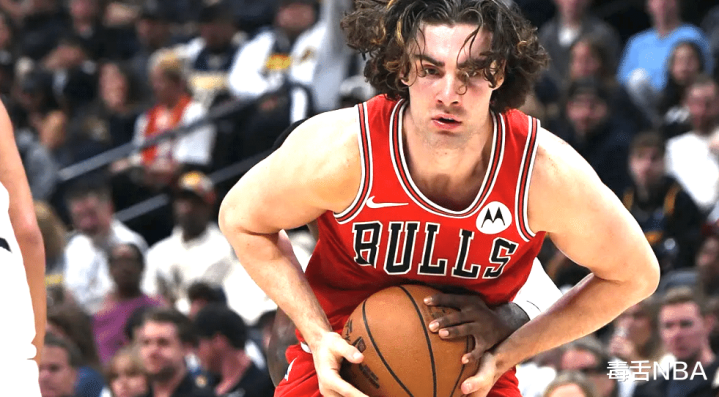
3. Balance of offense and defense: from "specialist" to "all-around player"
The rise of the Bulls is by no means just dependent on the dual-core scoring explosion. What's more important is that they finally found the password of "balance of offense and defense". In the past, teams either had full offense and collapsed defense, or they could focus on defense and lose power on offense. They were never able to balance it all. The Bulls in March completely broke this strange cycle - the offensive efficiency returned to the top level of 121 points, but the defensive efficiency remained stable at 116.8 points. The 4.3-point margin of victory may not seem like much, but it is the team's "secret weapon" to win.
This change stems from the unity of the team's thinking. After LaVine left the team, although White and Guiddy became the core, they did not engage in "single fights". Gidi's organizational skills make the offense smoother. He averages 9.5 assists per game and can accurately find his teammates, avoiding the problem of "stars gathering together but fighting separately" in the past; White finishes efficiently on the offensive end and actively participates in defense. The two set an example and drive the whole team. This kind of "online offensive and defensive lines" has never appeared in the era of the Big Three.
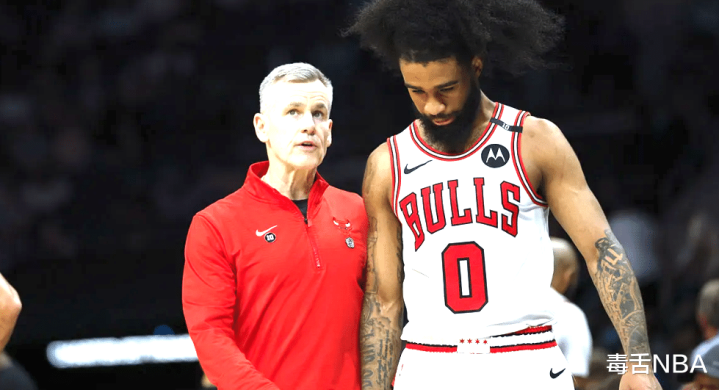
The improvement on the defensive end is even more precious. In the era of the Big Three, the Bulls were last in the league in terms of defensive efficiency and points allowed in the penalty area. Now they finally understand that good defense requires talent, but also communication and collaboration. Gidi's steals, White's outside blocking, Vucevic's inside frame protection, and new aid Okoro's bench defense formed a complete defensive system.
4. Confidence for Rise
This summer, the Bulls signed a four-year, $100 million contract extension with Gidi, with a starting salary of 22.32 million, making the post-00s player with the highest salary on the team in the new season. This contract not only locks in the core, but also sends the signal of "taking young players as the cornerstone." Gidi has also proven with his performance that he is worthy of this trust. His growth rate far exceeds expectations, and becoming an All-Star in the new season is no empty talk. Coby White has been improving in recent years. Last season, his performance was already at a quasi-All-Star level, averaging 20.4 points, 3.7 rebounds, 4.5 assists, 0.9 steals and 0.2 blocks per game. Rising star Buzelis is definitely an unexpected bonus for the Bulls. Last season, he averaged 18.9 minutes per game, 8.6 points, 3.5 rebounds, 1.0 assists, 0.4 steals and 0.9 blocks, with a three-point shooting rate of 45.4/36.1/81.5%. In the opening game, he scored 21 points and 6 rebounds.
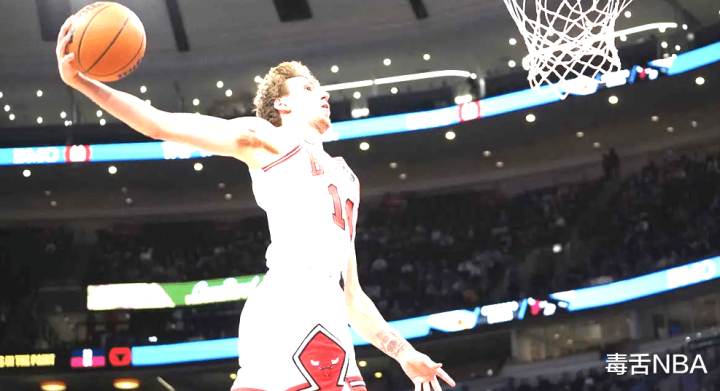
The addition of new players has added stability to the team. This summer, the Bulls sent Lonzo Ball, who has been suffering from injuries, to the Cavaliers in exchange for Isaac Okoro, a wing who averaged 8 points and 2.8 rebounds per game in his five-year NBA career. Although he is not a star player, he can increase the thickness of the bench and keep the rotation stable during the season. There is also last year's No. 11 pick Buzelis, who averaged 8.6 points and 3.5 rebounds per game last season with a shooting percentage of 45.4% and 36.1%. If he gets more playing time in the new season, he is expected to become an important addition to the inside.
In the regular season opener, the Bulls defeated the Pistons, already showing their confidence: Vucevic had a steady output with 28 points and 14 rebounds, Buzelis emerged with 21 points, 6 rebounds and 3 blocks, and Gidi continued his playmaker performance with 19 points, 5 rebounds and 11 assists. Today against the Magic, under the tandem organization of Kiddy and Tre Jones, seven Bulls players scored in double figures. Kiddy posted impressive statistics of 21 points, 8 rebounds and 3 assists. From "rebuilding expectations" to "impacting the playoffs", the Bulls completed the turnaround in just half a year, and their advantages continue - the dual-core is young and on the rise, the offensive and defensive system has gradually matured, and the depth of the bench has also been strengthened.
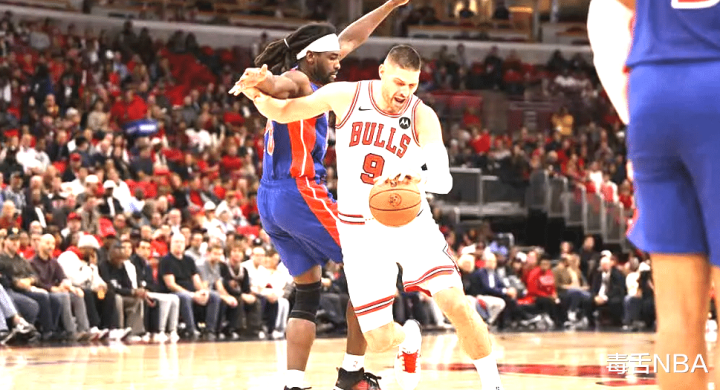
For Chicago fans, this may be the closest moment to a "revival" since Rose. They no longer need to miss Jordan's legend or regret Rose's regrets, because White and Giddy are bringing new hope. Of course, the road to the playoffs will not be smooth. There are strong teams in the East such as the Bucks and Knicks, but the Bulls have proven that without LaVine and DeRozan, they have found the real "winning password." "When the tide goes out, you will know who is swimming naked." The rise of the Bulls is the best interpretation of this sentence - after the glitz of the Big Three era faded, the team saw the real problem; and when the core left the team and seemed to be in dire straits, the explosion of young players and the reshaping of the offensive and defensive system ushered in a new life for the team.
Related Posts
- As expected! Reporters posted netizen prediction votes: 60% successfully predicted that James would not announce his retirement.
- A star who may retire in the NBA in the past five years. Time always says goodbye
- +1! The fourth player this summer goes abroad and joins the overseas league and is expected to become the next Yang Hansen
- Adebayo s girlfriend is too strong: He won 6 consecutive victories with 30+16, breaking the record and becoming the first person in WNBA history
- The Chinese men s basketball team will see a blowout talent in the next Olympics, and Yao Ming s dividends will gradually be reflected!
- NBA Rockets News: Renewal with Tate
- Wiggins takes a family on vacation and earns 250 million yuan. The Lakers want to trade him, and his wife has a good figure
- Heroes cherish each other! Pierce praised Kobe as the second Jordan, saying that defending him is very stressful
- NBA Playoffs: Unexpected 3-1, Kaiyong is in trouble, Nuggets Thunder King Mountain
- Chasing dreams and mocking Dillon was criticized by American netizens! James was caught in a gunfire!
Hot Posts
- As expected! Reporters posted netizen prediction votes: 60% successfully predicted that James would not announce his retirement.
- A star who may retire in the NBA in the past five years. Time always says goodbye
- +1! The fourth player this summer goes abroad and joins the overseas league and is expected to become the next Yang Hansen
- Adebayo s girlfriend is too strong: He won 6 consecutive victories with 30+16, breaking the record and becoming the first person in WNBA history
Recommend

Reed talks about the Redemption Team: James becomes mature, Kobe s role is defense, James is the organization
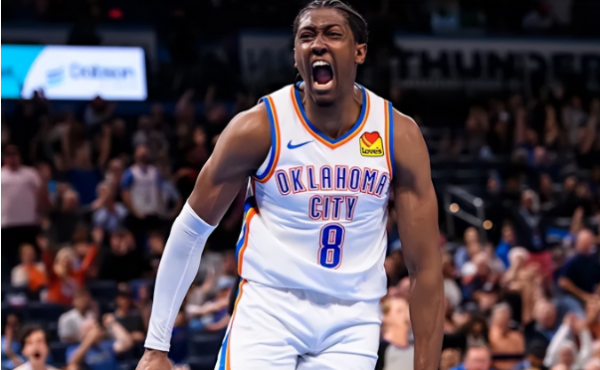
Playing beautiful balls in 36 minutes only 3 minutes, Jewe made 6 of 19 shots and became the key to losing. After the game, he vowed: I will still shoot relentlessly
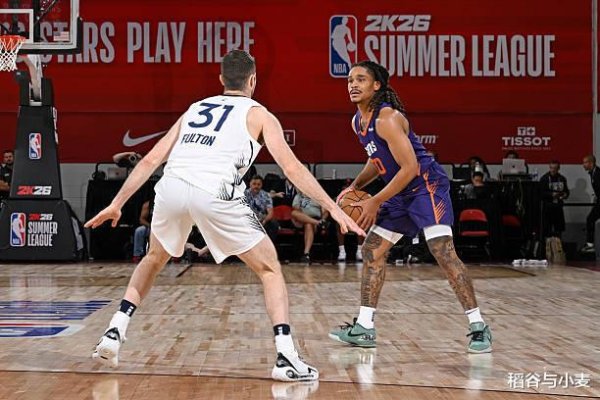
Scoring ability is seriously insufficient! The performance of the former Warriors star in the backcourt in the Suns is very disappointing?

Ibaka: If the third young master of Thunder did not disband, we would have won at least two championships

Doncic talks about weight loss: I played until June last year and then went to the national team again. I have more time this year

Windhorst: It s a good deal for the Heat to get Powell. He will perform very well in his contract year.
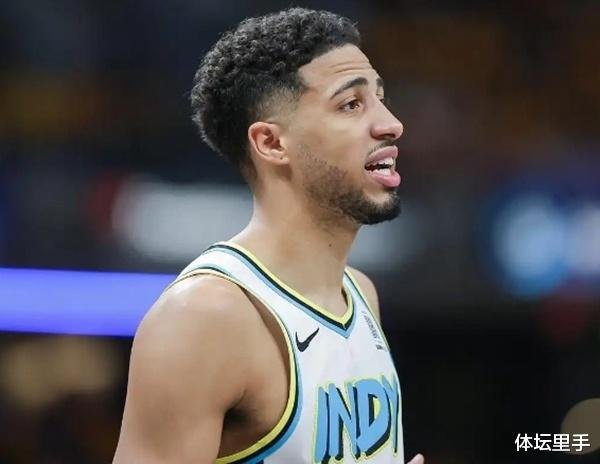
4 points and 5 assists! The hero turned into an undercover agent, the Eastern Conference team suffered a 22-point defeat, and lost 18 frontcourt rebounds

The Lakers officially announced layoffs! A new lineup is released! The championship list is finalized!